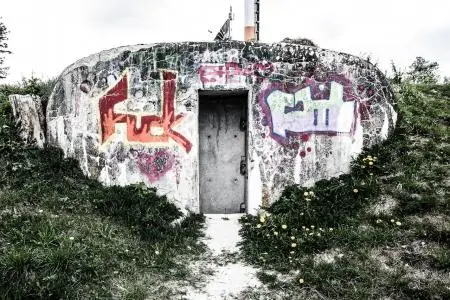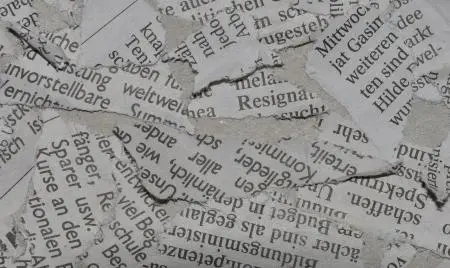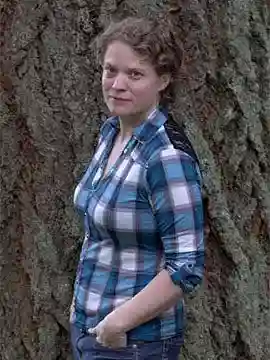This week's theme: Protagonists named Jamie. For some reason.
First up we have Tom Adams with the following opening to a short story:
Aga must have been sitting there all night. Still. Eyes closed. Serene. Jamie was in the bunker below, and had been staring at her on the CCTV monitor for over five minutes now, melancholy pervading his soul. Wisps of ash built up on Aga's hair and shoulders like a grey mantle. He could still make out the silver plait, part of her identity, draped down her chest. Her once tanned, wrinkled face was now pale and bloodless.
A rustle in the adjoining room told Jamie someone was stirring. Biological clocks kept time in this subterranean prison, now that the sun refused to shine.
"General, is that you?" he shouted. "C'mere, there's something I think you ought to see."
Jamie saw the general's grizzled face appear as a reflection in the blue glow of the monitor.
"My God," the general mumbled from behind him. "She's frozen solid."
Jamie adjusted the screen's contrast. "I switched the external lights on for the usual morning check, and there she was."
The general slumped into a chair next to him and rubbed his marble-white beard.
"I said goodnight to her before I turned in. She told me the joke about the Eskimo sitting on a block of ice."
Jamie turned to him. "What was the punchline?”
"He caught Polaroid."
Jamie smiled. "She was always cheering us up, right?"
"Right. I didn't twig at all. Would never have guessed..."
"Why did she do it?"
"Self sacrifice. Probably bought us an extra ten days based on what little she ate of our rations."
Tom says: It's a post-apocalyptic scene set in the 'nuclear winter' produced from a catastrophic nuclear war (hackneyed, I know). I'm trying to describe, in as few words as possible, the setting of a nuclear bunker and two characters reaction to the death of one of their companions. The death is significant as an ingredient in the conclusion of the story. Any input you can give to streamlining this passage would be much appreciated.
To jump right in, the following were the main issues I had:
- The opening line is vague. We know nothing about the story at this point, so telling us she’s sitting “there” leaves her floating. The sooner you can ground her, the better.
- The line “melancholy pervading his soul” felt like a bit much, so I replaced it with something more concrete.
- The dialogue threw me when I first read it because the attribution was unclear in places.
Beyond that, I might suggest including some more description where you can. I’m all for not weighing a story down, but there are some places where you can slip a little something in. Consider your five senses—touch, smell, taste, sound, sight. What is the temperature in the bunker? Is everything concrete and cold? What does it smell like? Stale air? Sweaty people? Decay? Are sounds amplified or muted? Can you hear anything outside? How is the lighting down there? Dim? Bright? Do the lights hum? How many people are there? How many rooms are there? I inserted possible answers to some of these in the revision.

Revision:
Aga must have been sitting outside in the ashen tundra all night. Eyes closed, perfectly still, and not at all dressed for the freezing temperatures. In the bunker below, Jamie had been staring at her on the CCTV monitor for over five minutes now, caught between admiration of her serenity and a deep sadness that she was gone. Wisps of ash built up on Aga's hair and shoulders like a grey mantle. He could still make out the silver plait, part of her identity, draped down her chest. Her once tanned, wrinkled face was now pale and bloodless.
Someone stirred in the adjoining room where the two dozen other survivors slept. Only biological clocks kept time in this subterranean prison, now that the sun refused to shine.
"General, is that you?" Jamie whispered. "C'mere, there's something I think you ought to see."
Soon the general's grizzled face appeared as a reflection in the blue glow of the monitor, his hot breath turning to fog in the cold air.
"My God," the general mumbled from behind him. "She's frozen solid."
Jamie adjusted the screen's contrast and wrapped his quilt around himself more tightly. "I switched the external lights on for the usual morning check, and there she was."
The general slumped into a chair next to him and rubbed his marble-white beard, squinting at the screen in the dim light. "I said goodnight to her before I turned in. She told me the joke about the Eskimo sitting on a block of ice."
Jamie turned to him. "What was the punchline?"
"He caught Polaroid."
Jamie smiled. "She was always cheering us up, right?"
"Right. I didn't twig at all. Would never have guessed..."
"Why did she do it?" Jamie’s eyes burned in frustration and he swallowed, his mouth dry with the stale, putrid bunker air.
The general shrugged. "Self sacrifice? Probably bought us an extra ten days based on what little she ate of our rations."
Next up we have Sandi Ford with the following opening paragraph:
The advice column was yellowed from age and years of nicotine-filled rooms. Its once jagged edges had feathered, and it seemed to Jamie that they were trying to become wings so the newspaper clipping could fly away. It shook in her hands. The words blurred and sharpened, blurred and sharpened, blurred and…. Three words were underlined, with an uneven star in black ink next to them.
Sandi says: It's the opening paragraph so I want it to grab the reader's interest. I'm always down for honing.
While a little mystery at the beginning can be fine, I didn't feel like there were enough clues here to really ground the story and get the reader's interest. Why is Jamie looking at the newspaper clipping right now? Did she accidentally come across it? Is she pulling it out to look at it again? Does she look at it all the time? Did she just discover it for the first time? Was the column cut or torn from the paper? It doesn’t seem like jagged edges could become feathered—something about that feels a little off, though I do like the imagery of it wanting to fly away. We don’t need to know everything, obviously, but a few more clues could go a long way.
Most importantly, what is the conflict? Right now it appears to be: “Old newspaper clipping makes woman sad.” Something more specific might be: “Woman comes across old newspaper clipping in her husband’s desk and realizes he’s been cheating on her.” In the revision below, I attempted to add some more detail for grounding and clarification.

Revision:
Jamie recognized the torn scrap of newspaper she found in her husband’s desk as being from an advice column in the local paper. It was yellowed from age and years of nicotine-filled rooms, and its jagged edges had softened into a feathery lightness as if it was trying to sprout wings so it could fly away. But Jamie held it too tightly in her shaking hands. The words blurred and sharpened, blurred and sharpened as the significance dawned on her. An uneven black star highlighted three underlined words: Just in case.
That concludes this edition! Feel free to discuss these edits and make other suggestions in the comments.
Also: I need more paragraphs to edit! Inundate me with yours either by posting in the comments or by messaging me. You can remain anonymous if you’d like. Just send me 300 words or less and a sentence or two explaining your goals or concerns, and I’ll see what I can do!

About the author
Gayle Towell’s stories have won the 2013 Women’s National Book Association writing contest, the 2014 Willamette Writers Kay Snow fiction award, and have been published in Menacing Hedge, Pif Magazine, and the Burnt Tongues anthology among other places. Her novella Blood Gravity was released through Blue Skirt Productions in September 2014. Gayle is the founding editor of Microfiction Monday Magazine and cofounder of Blue Skirt Productions, an artists’ collective. For more information, visit gayletowell.com.








